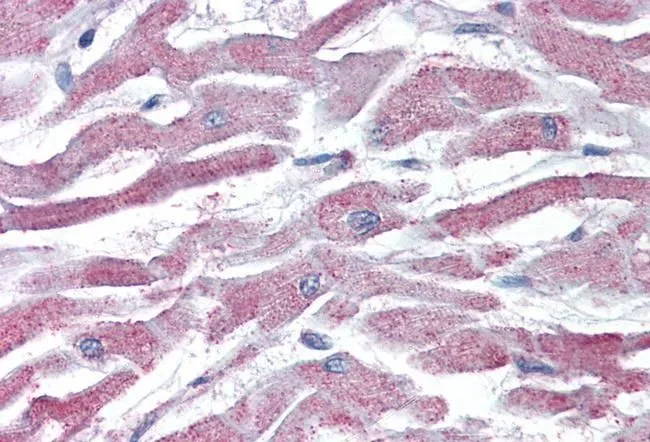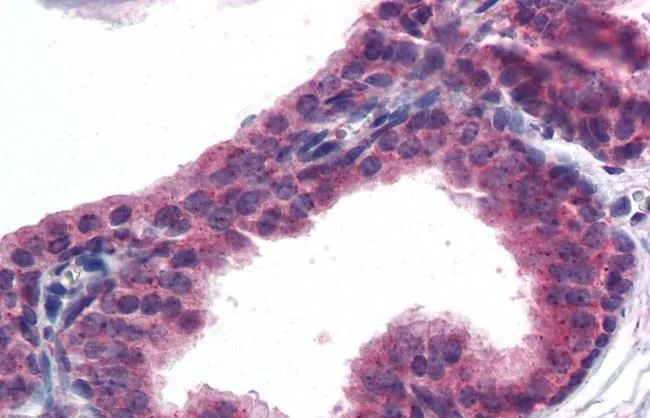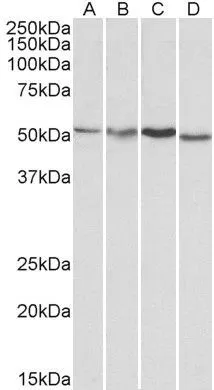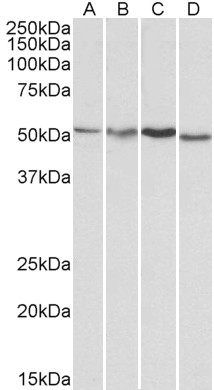
WB analysis of HEK293 overexpressing AKT3 (mock transfection in second lane) using GTX89647 AKT3 antibody, Internal.
AKT3 antibody, Internal
GTX89647
ApplicationsWestern Blot, ImmunoHistoChemistry, ImmunoHistoChemistry Paraffin
Product group Antibodies
ReactivityHuman, Mouse, Rat
TargetAKT3
Overview
- SupplierGeneTex
- Product NameAKT3 antibody, Internal
- Delivery Days Customer7
- Application Supplier NoteWB: 1-3microg/ml. IHC-P: 5microg/ml. *Optimal dilutions/concentrations should be determined by the researcher.Not tested in other applications.
- ApplicationsWestern Blot, ImmunoHistoChemistry, ImmunoHistoChemistry Paraffin
- CertificationResearch Use Only
- ClonalityPolyclonal
- Concentration0.50 mg/ml
- ConjugateUnconjugated
- Gene ID10000
- Target nameAKT3
- Target descriptionAKT serine/threonine kinase 3
- Target synonymsMPPH, MPPH2, PKB-GAMMA, PKBG, PRKBG, RAC-PK-gamma, RAC-gamma, STK-2, RAC-gamma serine/threonine-protein kinase, PKB gamma, RAC-gamma serine/threonine protein kinase, v-akt murine thymoma viral oncogene homolog 3 (protein kinase B, gamma)
- HostGoat
- IsotypeIgG
- Protein IDQ9Y243
- Protein NameRAC-gamma serine/threonine-protein kinase
- Scientific DescriptionThe protein encoded by this gene is a member of the AKT, also called PKB, serine/threonine protein kinase family. AKT kinases are known to be regulators of cell signaling in response to insulin and growth factors. They are involved in a wide variety of biological processes including cell proliferation, differentiation, apoptosis, tumorigenesis, as well as glycogen synthesis and glucose uptake. This kinase has been shown to be stimulated by platelet-derived growth factor (PDGF), insulin, and insulin-like growth factor 1 (IGF1). Alternatively splice transcript variants encoding distinct isoforms have been described. [provided by RefSeq, Jul 2008]
- ReactivityHuman, Mouse, Rat
- Storage Instruction-20°C or -80°C,2°C to 8°C
- UNSPSC12352203






![WB analysis of human kidney tissue lysate using GTX13919 AKT3 antibody [66C1247]. Dilution : 2 μg/ml Loading : 30μg](https://www.genetex.com/upload/website/prouct_img/normal/GTX13919/GTX13919_1072_WB_w_23060620_433.webp)

